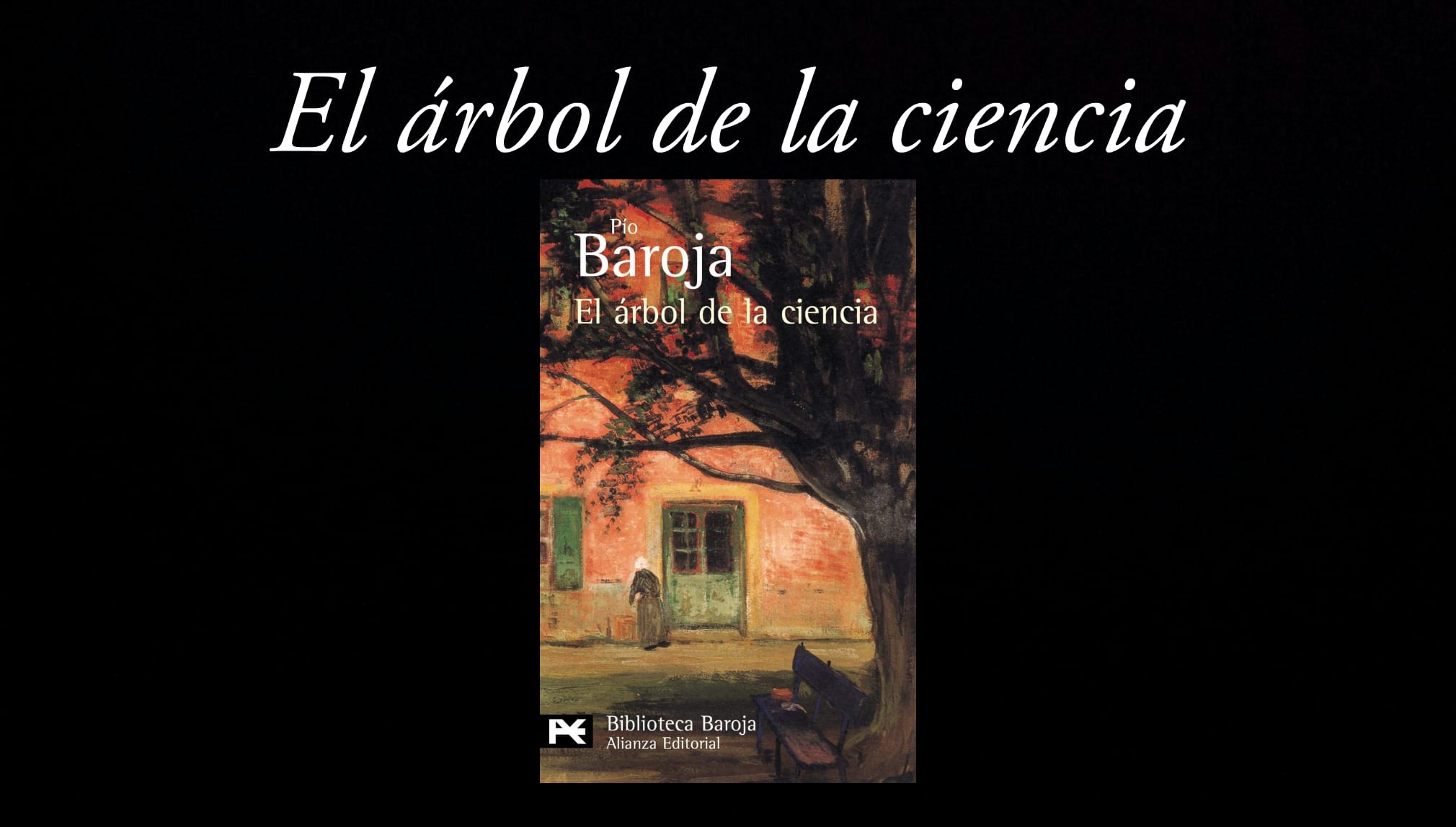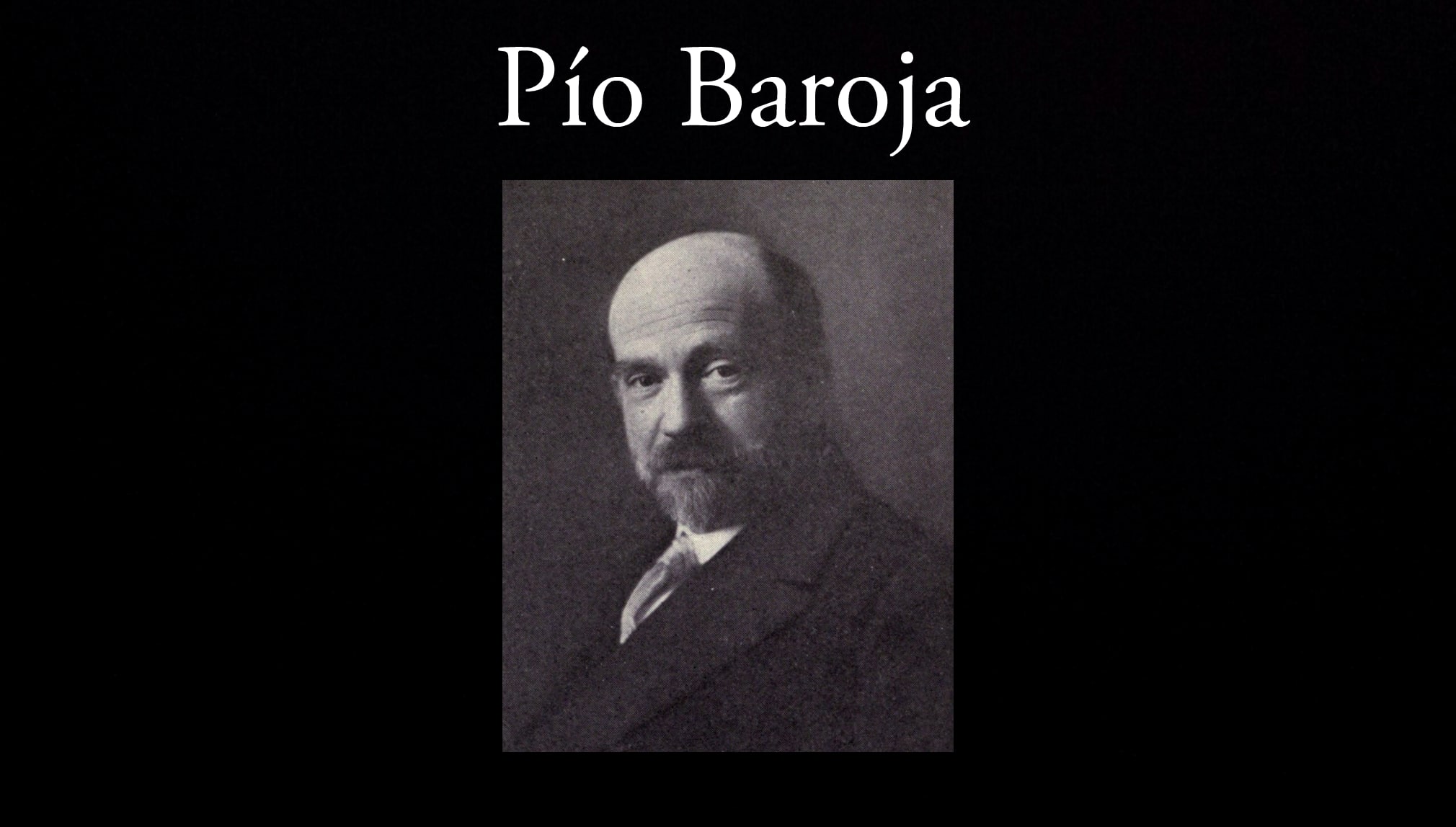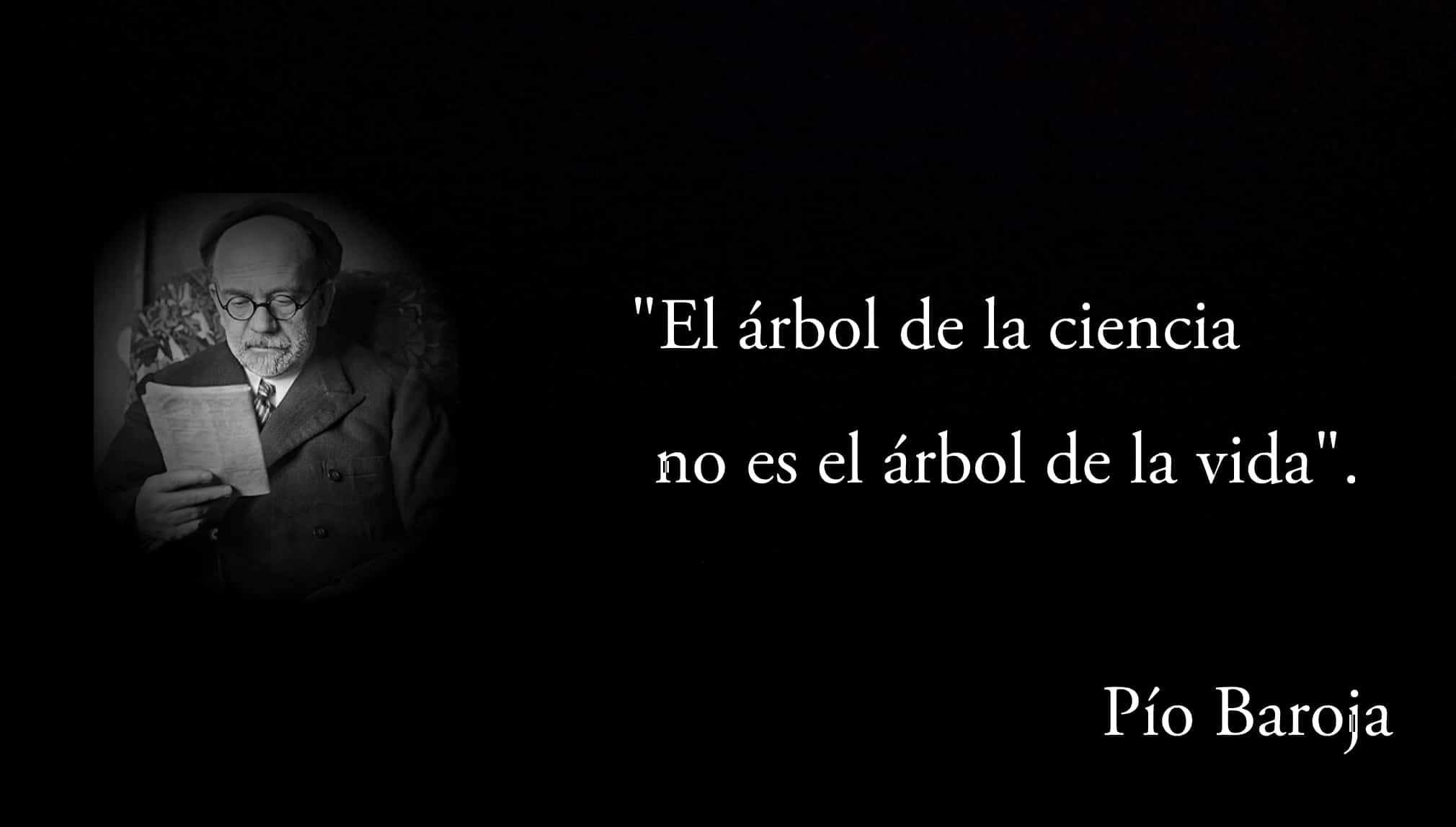
The science tree.
Synthesize a novel like The science tree de Pío Baroja is not exactly an easy task. Moreover, the editorial (June 11, 2019) of the website espaciolibros.com describes as "literary sacrilege" to make its complete summary. In line with this, José Carlos Saranda affirms: “a summary can never replace the calm reading of the work and less than The science tree".
On his website (2015), Saranda reaffirms the validity of the author's postulates - despite the time that has elapsed - in the context of today's society. The book reveals autobiographical segments of Pío Baroja, one of the emblems of the Generation of 98. His lyrics reflect the difficult circumstances experienced in Spain at the beginning of the XNUMXth century.
Biographical synthesis of the author, Pío Baroja
Pío Baroja y Nessi was born in San Sebastián (Spain), on December 28, 1872. His father was Serafín Baroja, a mining engineer; his mother, Andrea Nessi (of Italian descent from the Lombardy region). Pío was the third of three brothers: Darío (1869 - 1894), Ricardo (1870 - 1953); and a sister, Carmen (1884 - 1949). Although he graduated as a doctor of medicine from the Central University, he abandoned the practice to the detriment of writing.
However, many of those experiences as a doctor (and some of the residences where he lived), Baroja described in The science tree. Due to its conservatism, it is considered one of the banners of the so-called Generation of 98. Throughout his life he produced nine narrative trilogies, two tetralogies, seven plays, plus countless journalistic works and essays. He died in Madrid on October 30, 1956.
Distinctive features of the Generation of '98 (noventayochismo)
As an emblematic representative of the Generation of '98, Pio Baroja reflects in his works almost all the typical characteristics of this artistic movement. Probably The science tree It is the noventayochismo novel with more features associated with the descriptions and social demands of the time.
Among them, a pessimistic perception of life, the description of dysfunctional families or the exacerbated misogyny of some characters. Likewise, the works of the Generation of 98 coincided in:
- Exploring existential problems.
- Boredom and boredom.
- The deepening of everyday anxieties.
- Nostalgia for an idealized past.
- The dilemma of an uncertain future.
- The approach to universal issues such as human dignity and the rights of people.
Synopsis of The science tree
It was published in 1911 as part of the trilogy The race. The novel is structured in two large sections (I-III and V-VII), which take place in various Spanish enclaves between 1887 and 1898. These parts are separated by an interlude in the form of a long philosophical talk between the protagonist, Andrés Hurtado, and Dr. Iturrioz (his uncle).
This conversation gives rise to the title of the book due to the explanation about the creation of the two most important trees in Eden. They are the tree of life and the tree of knowledge, the latter forbidden to Adam by divine mandate. Under this argument, Baroja develops themes closely linked to feelings of anguish, grief, boredom, philosophy and the crisis of the late nineteenth century.
Home
The novel begins with numerous real references to Baroja's life. Therefore, Andrés Hurtado's medical career is almost an autobiographical story.. From the second act of the first part (the students), the author describes a rather inhuman X-ray of the Madrid community. Similarly, the picture of the protagonist's family clarifies the origin of his demoralized and insecure psyche.
As the narrative progresses, the isolation of a disoriented protagonist in the midst of a frivolous and superficial society is accentuated. Through Hurtado, Baroja expresses his contempt for the prevailing materialism in the Spanish capital during those times. The author also details the unnecessary pressures suffered by the young student caused by the expectations of others (especially those of his father).
Accentuated fears
Andrés' neurotic ideas become more frequent. Fears - justified or not - are the order of the day, and, apparently, the practical classes of medicine aggravate his psychosis. With each new subject, Hurtado confirms his greater predilection for philosophical texts rather than the books typical of his medical career. Therefore, he perceives his career as a forced path that must end as soon as possible.
Except for mathematics (applied to subjects such as biology, for example), the protagonist finds little motivation to study. Only Uncle Iturrioz seems to shine some light on the protagonist's listless existence. Nonetheless, Hurtado forges a strong friendship with Montaner, a formerly prejudiced fellow student.
Empathy, reflection and hypocrisy
The physical and / or emotional ailments of different people in Hurtado's environment produce in him an incessant restlessness. Among them, Luisito, a patient for whom he feels an “almost pathological” affection, and Lamela “the laggard”. The circumstances of both characters raise doubts about the true usefulness of medicine. Only the contacts with Margarita (a colleague) brought some hope to Andrés' life.
Additionally, the protagonist's passage through the San Juan de Dios Hospital was not exactly encouraging, quite the opposite ... Despite everything, Hurtado is approved to work as an intern with his partner Julio Aracil. But the experience resulted in constant clashes with the authorities of the hospital because of their immorality and falsehood.
The women of the time
Baroja begins the second part by narrating the transformation of Julio's esteem for Andrés, towards a corrosive envy. However, thanks to Aracil, the meeting between Hurtado and Lulú takes place. This is an unconventional girl, whose wayward and intentionally ordinary demeanor intrigues Andrés a bit.
Meanwhile the author uses these passages to show his hatred for those men who treat women as objects, at their convenience. In the same way, in the story of the "History of the Venance" Baroja explains all the inequalities and social injustices of the time. Which are accepted with resignation - rather conformism - by the inhabitants of Madrid, especially by the elderly.

Pius Baroja.
The countryside
As Andrés feels more misunderstood by his colleagues (disinterested in philosophical issues), he becomes closer to his uncle Iturrioz. With him, he has long existential and philosophical conversations. In the midst of the dialogues, Baroja takes the opportunity to discern around the thoughts of - his admired ones - Kant and Schopenhauer.
After graduating, the protagonist moves to the Guadalajara countryside to work as a rural doctor. There, he sinks into reluctance for his profession and has constant discussions with another doctor and with patients. The main reason for quarrels is almost always the old-fashioned (and in many cases dangerous) customs of the peasants.
Return to Madrid
After the death of his brother (another autobiographical event of the writer), Andrés decides to return to Madrid. But in the capital it is difficult for him to find work. Consequently, he tries in vain to find the purpose of his profession by caring for prostitutes and very poor people, which further corrodes his faith in people. His only space of comfort are his conversations in the store with Lulu.
Temporary happiness
Thanks to the intermediation of his uncle, Andrés begins to work as a translator and reviewer for medical research. Although this occupation does not satisfy him as much as a more intellectual profession would, he manages to enjoy it very much. Thus begins a period of tranquility that lasts a little over a year. Furthermore, Hurtado finally falls in love with Lulu (she was attracted to him from day one).

Phrase of Pío de Baroja.
After discussing the matter with his uncle, Hurtado decides to ask his beloved's hand. Although, doubts never leave the protagonist because he is reluctant to have children. Anyway, Lulu convinces him and gets pregnant. The idea of an offspring plunges Andrés back into a dark depression.
The inevitable end
The picture ends up darkening when the baby dies shortly before birth and, after a few days, Lulu dies. Consequently, the resolution set from the first lines of Baroja's novel is fulfilled: the suicide of Andrés Hurtado ... Consumed on the same day as Lulú's funeral by taking a lot of pills that ended so much suffering.
You want it? You can get it by clicking here.